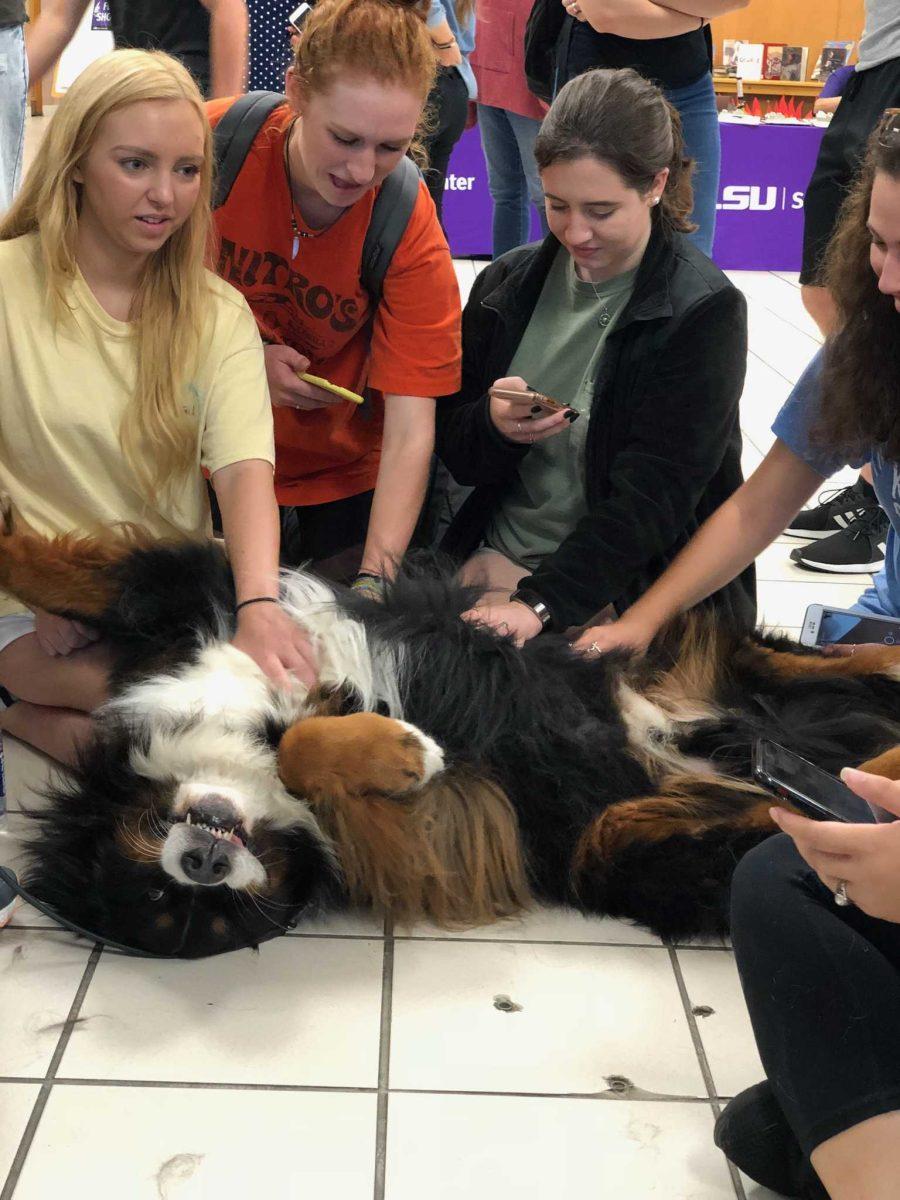The Tiger Human Animal Therapy Service (Tiger HATS) is a community program partnered with the LSU School of Veterinary Medicine that promotes mental health through service animals.
Tiger HATS provides therapeutic programs that promote the benefits of animal-human interactions. Volunteers bring their service pets to local hospitals, nursing homes and various locations on the University’s campus.
According to the LSU School of Veterinary Medicine’s website, the program aims to better clients’ daily lives through interactions and animals, whose acceptance of people promotes well-being.
The program began in 1991 and was developed by LSU School of Veterinary Medicine Assistant Professor Stephanie Johnson. There was a small pre-cursory program to Tiger HATS, but Johnson made the program more formal and incorporated more processes into volunteers and their animals getting into the program.
Each volunteer team consists of a volunteer and their pet. All animals in the program must be registered through Pet Partners, a national registration for pet therapy animals. Through Pet Partners, the pet and volunteer must go through training.
This training involves animal expectations, how to interact with patients and the cleanliness that is expected of the animals. Johnson said the animals must also pass a temperament test with the volunteer.
“During the temperament test, what we’re looking for is predictability,” Johnson said. “Any time there is something different, you know their behavior is the same.”
Dogs don’t have to be a specific breed to become service dogs, but they must have basic obedience skills. The Tiger HATS dogs see a wide variety of people and environments, so the dogs must be comfortable and calm in any situation.
Johnson said after some nursing home visits, the staff will tell her the patient that saw the dog smiled and made an effort to talk for the first time in a week. When the dogs visit nursing homes, they often help to bring back memories from patients’ childhood pets.
“There’s no magic to what we do. We walk in, they see the dogs and, you know, things change,” Johnson said.
Johnson said she enjoys being involved in the program because she is able to bring joy into situations that may otherwise not be very positive.
Diane Sylvester became involved with Tiger HATS about 15 years ago after a dog trainer told her that her dog would make a good service animal and directed her to LSU Tiger HATS. Now the director of the program, she evaluates new dogs and volunteers and matches volunteers to visitations.
Sylvester said the automatic change in someone’s attitude after seeing a service animal touches her heart.
“We’re a really important quality of services,” Sylvester said. “It’s something that’s a bit unusual, but it really brings in a lot of pleasure to a lot of people.”
According to Sylvester, many organizations on the University’s campus invite Tiger HATS to visit, but the program cannot do much on campus because of the number of volunteers and dogs required to do so. Tiger HATS makes visits to locations on the University’s campus throughout the year, including Middleton Library, the law library and the library at the School of Veterinary Medicine.
Tiger HATS dogs will be at Middleton Library on Dec. 9 and Dec. 12 from 11-1 p.m. to help students destress during finals week.






